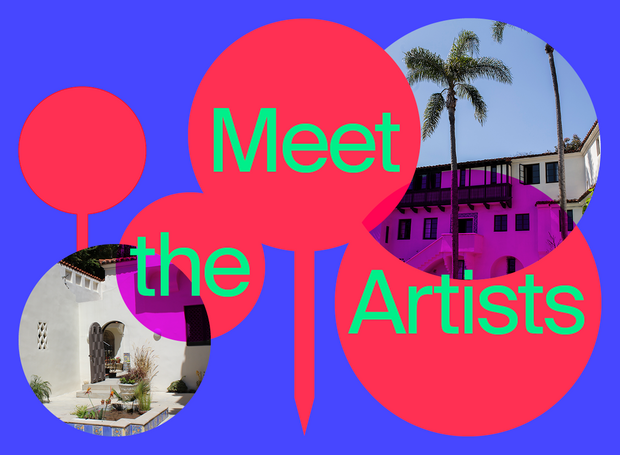Meet The Artists
Participants

Born 1966 in Duisburg, studied Film and Communication Studies at the FU - Free University Berlin. Nina Fischer, born 1965 in Emden, studied visual communication at the Berlin University of the Arts and directing at the DFFB - German Film and Television Academy Berlin. The Berlin-based artist duo has been working together since 1995.

Born 1965 in Emden, studied visual communication at the Berlin University of the Arts and directing at the DFFB - German Film and Television Academy Berlin. Maroan el Sani, born 1966 in Duisburg, studied Film and Communication Studies at the FU - Free University Berlin. The Berlin-based artist duo has been working together since 1995.

Born in 1994 in Räckelwitz, studied Political Science, German Literature and Cultural Management. He now lives as a freelance author in Görlitz. His texts focus on the reunification of Germany and the transformation processes during the post-reunification period especially in the region of Lusatia.

Born in 1984 in Achim, Annika Kahrs studied Fine Arts at the Academy of Fine Arts in Vienna and at the Academy of Fine Arts in Hamburg. She currently lives and works in Hamburg and Berlin. In her videos, installations and performances, Annika Kahrs explores the margins of music and questions its cultural and social function, its communicative aspects and its formal composition. The relationship between man and nature, the poetic and aesthetic dimensions of natural science, and the representation of natural phenomena all play a part in this artistic process.

Born 1994 in Hamburg, Paulina Lorenz studied film, music and visual culture at the University of Hildesheim and Brown University, and holds a M.A. in migration studies from the University of Copenhagen. In 2015 she co-founded the German film collective JÜNGLINGE, which explores queer-feminist and postmigrant perspectives in film, television and popular culture. Today she develops, writes and produces feature and episodic work, such as the 2020 Teddy Award winner "No Hard Feelings."

Raised in the hybrid cultures of Germany, Faraz Shariat, born in 1994, sees migration and the post-migrant state of mind as a potential for queer, diverse, and most of all political stories about living together in our society. Indulging in bold pop imagery, his films aim to build a space we can all connect to. They empower unapologetically: Seen through a tender and radically honest gaze, his characters always preserve their agency, no matter how catastrophic the world they live in.





